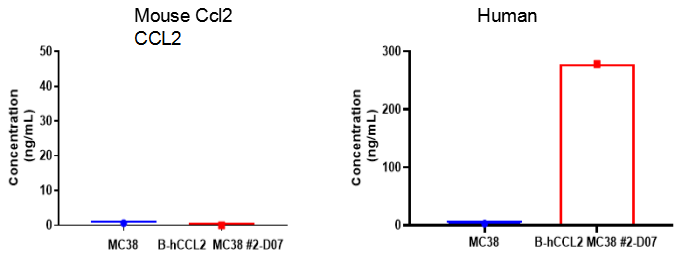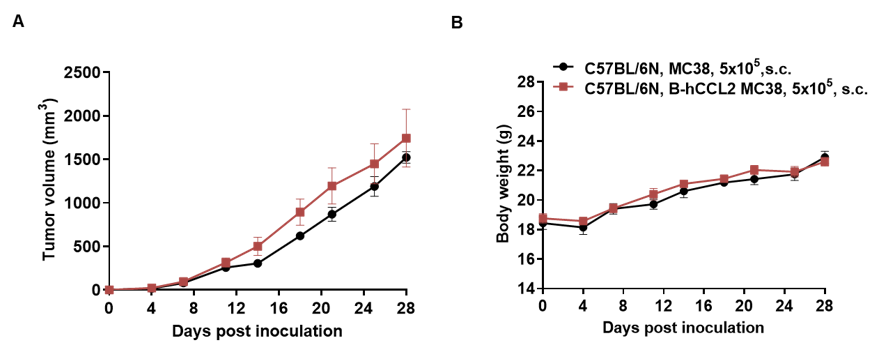|
Common name |
B-hCCL2 MC38 | Catalog number | 321866 |
| Aliases |
HC11, MCAF, MCP1, MCP-1, SCYA2, GDCF-2, SMC-CF, HSMCR30 |
Disease | Colon carcinoma |
|
Organism |
Mouse |
Strain | C57BL/6 |
| Tissue types | Colon | Tissue | Colon |
Description
The mouse Ccl2 gene was replaced by human CCL2 coding sequence in B-hCCL2 MC38 cells. Human CCL2 can be secreted by B-hCCL2 MC38 cells.
B-hCCL2 MC38 cells have the capability to establish tumors in vivo and can be used for efficacy studies.
Gene targeting strategy for B-hCCL2 MC38 cells. The exogenous promoter and human CCL2 coding sequence was inserted to replace part of murine exon 2~3. The insertion disrupts the endogenous murine Ccl2 gene, resulting in a non-functional transcript.
Protein expression analysis


Subcutaneous homograft tumor growth of B-hCCL2 MC38 cells. B-hCCL2 MC38 cells (5x105) and wild-type MC38 cells (5x105) were subcutaneously implanted into C57BL/6N mice (female, 7-week-old, n=5). Tumor volume and body weight were measured twice a week. (A) Average tumor volume ± SEM. (B) Body weight (Mean± SEM). Volume was expressed in mm3 using the formula: V=0.5 X long diameter X short diameter2. As shown in panel A, B-hCCL2 MC38 cells were able to establish tumors in vivo and can be used for efficacy studies.











